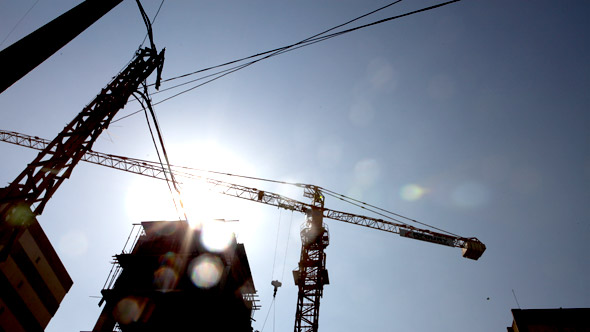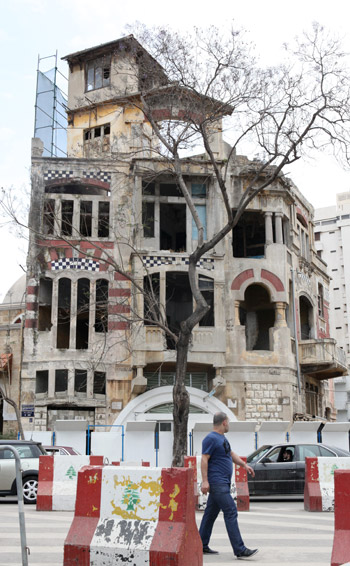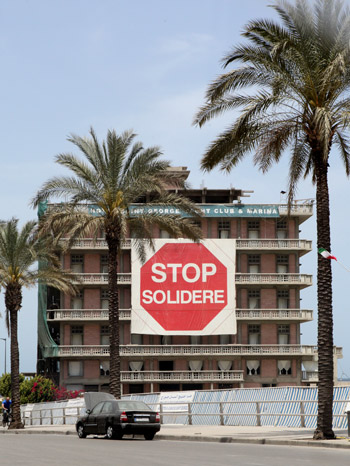Lebanese Real Estate Sector: Hopes and Fears for Lebanese Real Estate
“Real Estate in the country is steady, which is good since it is already on the high end,” said Nicolas Nahas, Lebanon’s Minister of Economy.

Marcopolis examined the multiple faces of property investments in Lebanon.
“Real Estate in the country is steady, which is good since it is already on the high end,” said Nicolas Nahas, Lebanon’s Minister of Economy.
“Now our consumption per capita is 1,200 kilos of cement, which is very high. We have four million inhabitants and we are consuming almost six million tons of cement, which is also very high.” Until today, most of the 18 million Lebanese people who live abroad dreamed of saving money and investing it in a home of their own in Lebanon.
The view from the private sector is slightly different. George Chehwane, Chairman of Plus Properties, is not a man who sells people the pig in a poke. Regarding the business climate in the current year 2012, Chehwane admitted that prospects weren’t ideal.
“Despite the fact that it witnessed a standstill in specific areas this year, there is no doubt that Lebanon has built a solid ground for real estate and tourism sectors between 2008 and 2009. I strongly believe that the setbacks we experienced in 2012 will vanish and sales will increase with the enhancement of the overall situation in the region.”
Chehwane’s statement is symptomatic for Lebanon’s property sector. Real estate investments in Beirut take investors from low to high and from cold to hot around the clock. Insiders clearly remember when the end of the 15-year long civil war in 1990 brought the start of the construction spree. A widely destroyed infrastructure (especially in the center of Beirut and in the south of the country) required huge investments and armies of baggers and cranes for re-construction. Lebanon was transformed into an El Dorado for developers and speculators.
In 1994, then-Prime Minister Rafik Hariri founded The Lebanese Company for the Development and Reconstruction of Beirut Central District, known as Solidere. Its shares were dual-listed in Beirut, London and later Berlin and soared massively during the first years of trading. The stylish architecture of downtown Beirut is mainly an accolade to Beirut given by Solidere. Chehwane’s company is part of the complex. “Today, we are finalizing the groundwork of Plus Towers, one of our large projects in Solidere, Downtown Beirut,” he said. “After the completion of seven underground stories, we will start rising with the off ground levels.”
“During the course of 2008 and 2009, Lebanon rebuilt a solid base in the real estate and tourism sectors. This year, we have experienced some back slides.”
Twenty years later, the atmosphere of departure has vanished. Regular Israeli attacks on the country partially destroyed the infrastructure under construction again in 1993 (Operation Accountability), 1996 (April War or Operation Grapes of Wrath), 1999 (Bombing of Beirut by – then outgoing and now current – Prime Minister Benyamin Netanyahu) and in 2006 (July War), when the Iranian-supported Shia’h militia Hezbollah managed to fire thousands of missiles into Israel and the Israeli air force bombed wide parts of the south and southern Beirut.
For the first time since the beginning of 2012, violent spillover does not come from Israel but from neighboring Syria. Since April 2011, “rebels” have tried to topple the regime under Bashar Al-Assad in Damascus. Whereas Lebanese civilians searched for shelter in Damascus in previous conflicts with Israel, refugees from Syria are now flooding the tiny state of Lebanon. Meanwhile, shares of Solidere fell to a 4-year low, weighing on the Beirut Stock Exchange or BSE. According to Dr. Ghaleb Mahmassani, the BSE’s Vice President, Solidere accounts for a third of the bourse’s market capitalization.
Plus Properties  Chairman George Chehwane, however, sees light at the end of the tunnel. “Once buyers and investors come to the conclusion that the Syrian crisis won’t escalate further and affect Lebanon, sales will improve. We are hoping that the interventions carried out by the Plus Towers Project in Beirut by Plus PropertiesUnited Nations as well as other international bodies, in addition to the negotiations held with the government on the one hand and the opposition on the other will eventually pay off and the situation in Syria would calm down.”
Chairman George Chehwane, however, sees light at the end of the tunnel. “Once buyers and investors come to the conclusion that the Syrian crisis won’t escalate further and affect Lebanon, sales will improve. We are hoping that the interventions carried out by the Plus Towers Project in Beirut by Plus PropertiesUnited Nations as well as other international bodies, in addition to the negotiations held with the government on the one hand and the opposition on the other will eventually pay off and the situation in Syria would calm down.”
Meanwhile, wealthy Saudi and Kuwait investors started to shift their capital away from Beirut and started to re-invest in Dubai. According to real estate consultancy Asteco, villa prices in “Fly-Buy-Dubai” increased by 16% in the first six months of 2012.
Nevertheless, Chehwane predicted a trend towards investments in small areas outside Beirut “because of the prices.” Other challenges are not coming from a lack of capital but rather a lack of available data. “The real estate sector suffers from a major lack of statistics which hinders real estate developers from acquiring a clear vision of the market. Due to the absence of accurate data, we cannot currently confirm that there is demand for 2000 properties worth $1.5 million in Lebanon,” Chehwane explained.
Despite all these worries, he can see a positive impact from the inflow of Syrian people coming to Lebanon.
“Our current target market includes Syrians who are renting property in Lebanon. Having the same language, customs, and culture, Syrians feel comfortable in Lebanon and thus, tend to buy or rent properties here.”